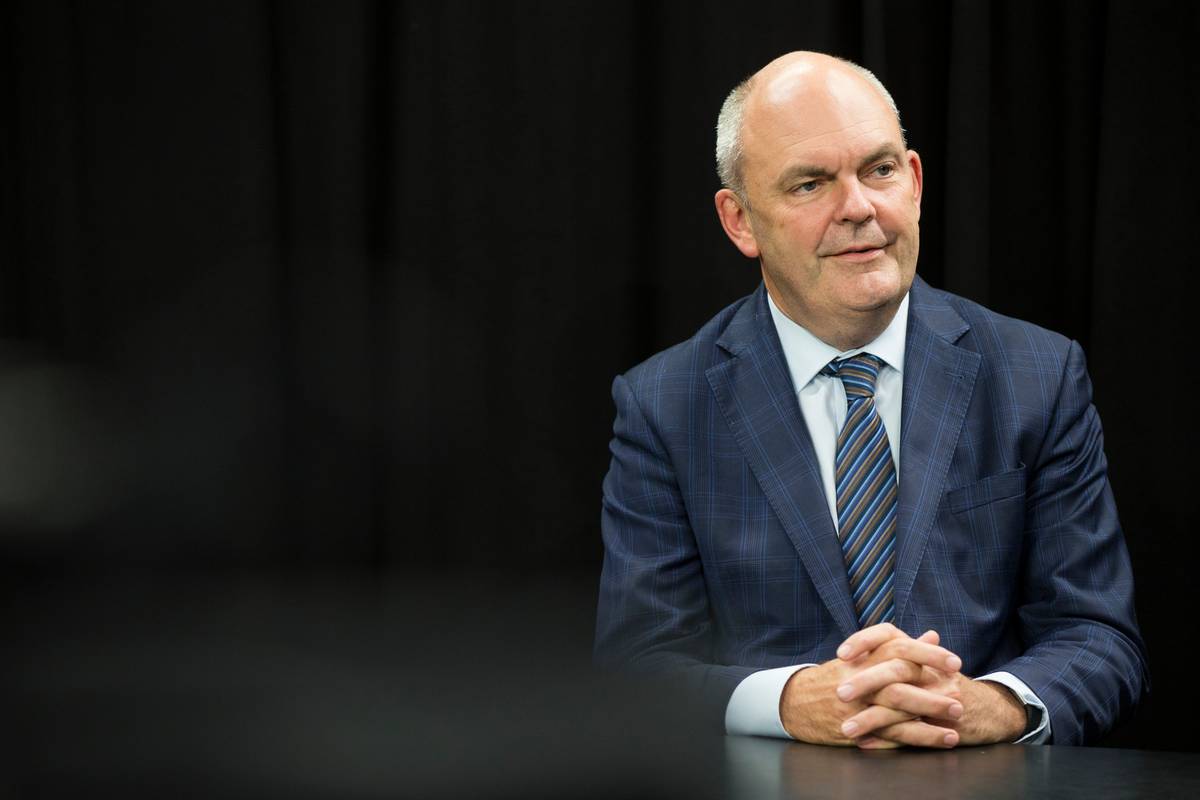OPINION
Steven Joyce seems to have had something of an epiphany. You see, he was for large and complicated centralisation when he was a minister, being the guy who created the MBIE monstrosity. Now he seems to have seen the error of his ways and has written a column advocating for devolution to the regions of many of the last Government’s big centralisation projects.
The previous Government largely dismantled local governance and control over big areas of activity in regional centres. In the clearly mistaken belief that Wellington knows best, local hospitals and polytechs have had their leadership removed, and local government was slated to lose control of its planning functions and Three Waters provision until that was all halted by the election result.
Centralisation is clearly not working, and if it continues, it will get worse. I have lost count of how many regional leaders I have talked to over the past few years who report that their polytech and hospital have completely disengaged from their community as a result of the reforms. The visibility each local region has of these crucial local services and their ability to shape them is now non-existent.
The question is, what to do next? How do you make an argument for restoring local control and leadership in regional New Zealand when the evidence is clear that leaders in two of our largest cities would currently struggle to run a bath?
NZ Herald
A good point. Both Auckland and Wellington are basket cases, and ironically it was centralisation that created rather than solved Auckland’s mess. It was steered into existence while Steven Joyce was a key minister too.
The answer must surely be to restore both limbs of leadership at the same time. The ability to make decisions, and clear accountability for those decisions. Part of the reason local government is often a bad punchline is because many people don’t take it seriously. Voting turnout is low and public interest is low, because it has too little impact on people’s lives – at least until it all goes wrong. For local government to work and local leadership to be successful, paradoxically, it actually needs to be given more responsibility.
NZ Herald
Easier said than done. Just ask Rodney Hide, the architect of the Auckland Super City. Auckland has had a succession of drongos leading it, and many of the councillors wouldn’t be trusted to run a meat raffle at a Cossie Club.
Take water. As I’ve written previously, Labour’s Three Waters plan was not universally bad. One good part was the independent regulator. It should have the power to require water standards to be met, and punish entities that don’t meet them. Corporatising water entities and providing a clear funding stream (from rates or water charges) is also important. You can’t have a long-term infrastructure investment plan if you have to go to council every year to beg for funding. Wellington Water currently has to beg for money from five entities each year.
The Government may need to provide some infrastructure funding to help councils catch up with their water investments, and that’s fine too. Governments do that all the time. But it should come with clear strings attached. A defined programme of work, a clear structure of the type mooted, and commitments to things like water meters to reduce wastage – all in return for the funding.
NZ Herald
Of course Steven Joyce likes the sound of Three Waters; he was involved in the early days of forming the framework for Labour to adopt. Ask him: he won’t deny it. National would have done the same had they won the 2017 election.
Polytechs and hospitals need an ownership model that provides local control, and that might mean something new. Nobody is arguing for a return of the DHBs. Shane Reti is rightly wary of more major structural change in health, but a community trust ownership model for regional polytechs and/or hospitals could give real local leadership, without much, or any, upheaval. Appointed local directors would provide a real local voice for these important local services, and again, regulators like NZQA and Health NZ can ensure accountability.
NZ Herald
Appointed local directors sounds like an excuse for nepotism and cronyism. More board positions for governments to reward their donors/sycophants with. This is already a problem in New Zealand and this promises to make it worse. I’m not sure I trust Health NZ or NZQA to even understand what accountability is, let alone how to spell it.
The new Government is promising regional deals to manage all this sort of stuff – a long-term partnership between central and local government around the likes of transport funding and water, to ensure agreed projects and agreed outcomes, such as housing affordability. These are a good idea. We did something similar in Christchurch post the earthquakes.
NZ Herald
Really? You’re holding up Christchurch as a good example? I’m not sure anyone in Christchurch, except Gerry Brownlee and his little band of helpers (one of whom was Chris Bishop), would agree.
The trick with regional deals will be not making them too complicated. And to prevent the time-honoured local government trick of revenue substitution – where central government offers to build pipes, and the local council says thanks very much and goes off and builds the Taj Mahal with the money it has “saved”. That comes down to agreeing on clear outcomes, and not making the deals too “global”.
Central government should trust local leadership to do more, because on the whole they know their regions better and know how to do things more efficiently and effectively. The key to avoiding the Wellington and Auckland malaise is agreeing on clear outcomes and clear accountability.
NZ Herald
This idea sounds like it comes from Steven Joyce, but in reality it is the brainchild of NZ First. Devolution and creating capacity in the regions has merit, but the devil is in the detail and that’s where these grand schemes often fall down.
But hey, I’ve got an idea, how about appointing Steven Joyce as the decentralisation czar, and then we can hold him to account when things don’t quite pan out as we were promised.
But if we are going to decentralise, then why not go further and decentralise the ultimate example of centralisation: the NZ Government. We could start by allocating some government departments to the regions.
I’m thinking IRD would be ideally located in Palmerston North or Waiouru; Work and Income in Kaikohe. You get the picture.

Help Keep The BFD Alive
Expenses are growing, ad revenue is shrinking. Things have to change otherwise we will need to cut services. We don’t want to have to do that. It’s really up to you.
Registered before? Log in to use your saved details.
If you registered an account, please enter your details below to login. If this is your first time, proceed to the donation form.
Please share this article so others can discover The BFD.

